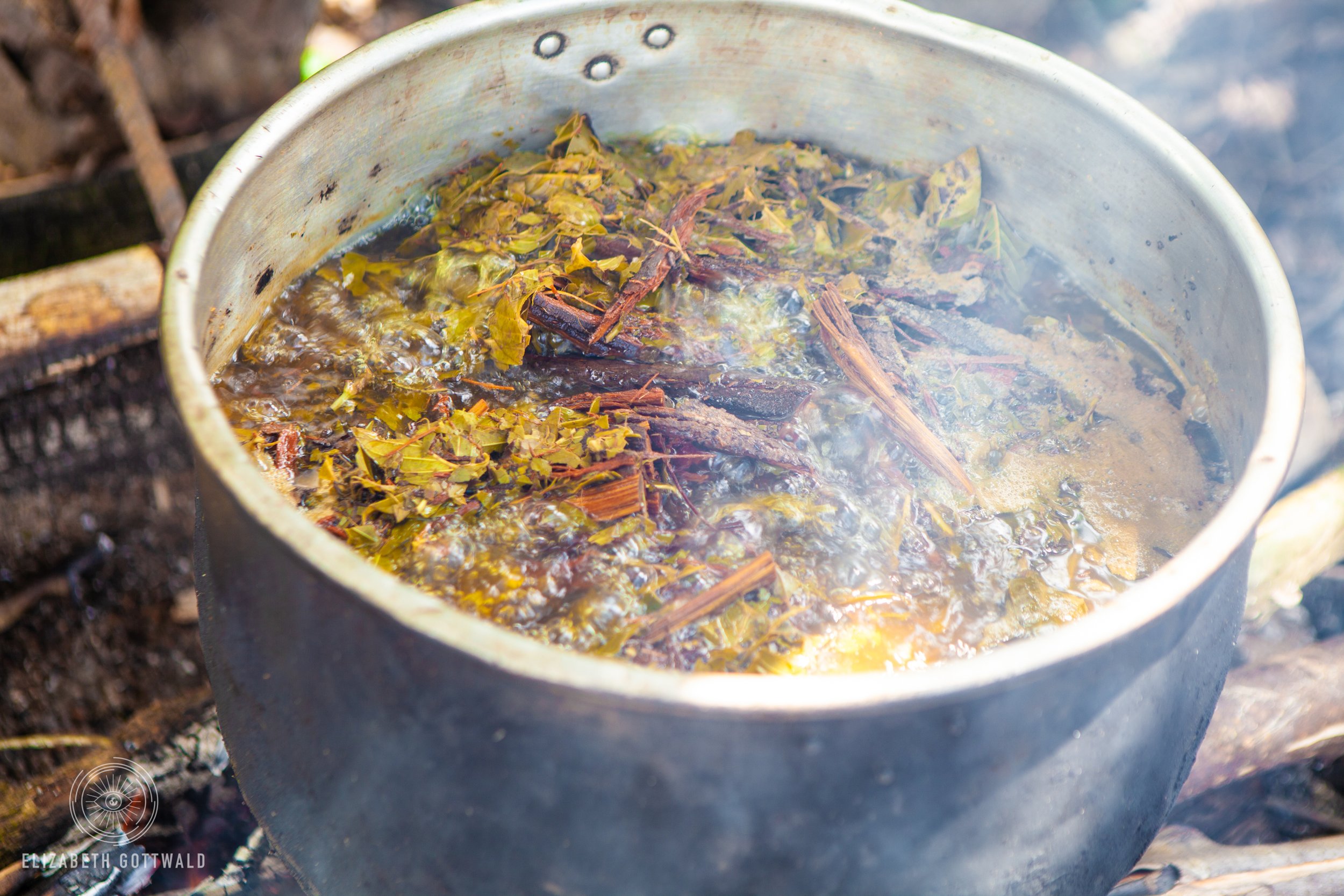The News
Ayahuasca: The Healing Brew or a Dangerous Journey?
Imagine yourself on the brink of the vast Amazon rainforest, where the air is rich with the earthy scent of damp soil and vibrant foliage.
It's here that whispers of a mystical brew circulate, one that promises to unlock the mind, heal emotional wounds, and connect us to something greater than ourselves.
This brew is ayahuasca, a psychedelic concoction that has captivated many, including high-profile figures like Prince Harry.
However, beneath the allure lies a darker reality, as evidenced by the tragic death of British mother Maureen E. Reinford during a retreat in Bolivia.
Maureen, a 54-year-old social worker, embarked on a 10-day journey to find healing, hoping to process her grief for an investment of 800 pounds.
Yet, what if the quest for inner peace leads to unforeseen consequences?
Her story raises critical questions about the safety and unpredictability of ayahuasca experiences.
Arriving in good health, Maureen was unaware of the challenges that lay ahead, as the brew's effects can be both profound and overwhelming.
So, what draws people to ayahuasca?
This ancient beverage is more than just a drink; it embodies a cultural phenomenon deeply rooted in the traditions of indigenous Amazonian tribes.
Composed of the Banisteriopsis caapi vine and other plants, participants often report vivid visions and intense emotional releases.
Could this be the key to self-discovery?
Celebrities like Prince Harry have openly praised ayahuasca for its ability to help individuals confront grief and trauma, leading to a surge in popularity among those seeking transformation.
Yet, the risks associated with ayahuasca cannot be overlooked.
While many return from their journeys feeling enlightened, there are also cautionary tales of adverse reactions and tragedies, such as Maureen's untimely death.
It's essential to recognize that ayahuasca is not a miracle cure; it can interact dangerously with certain medications and pre-existing health conditions.
This raises the question: Are retreat centers doing enough to screen participants and ensure their safety?
To truly grasp the effects of ayahuasca, one must delve into its chemical composition.
The brew contains DMT, a powerful psychedelic that alters consciousness by engaging the brain's serotonin receptors.
For many, this leads to intense visual and emotional experiences, allowing them to confront buried fears and traumas.
However, for those with underlying mental health issues, the intensity can spiral into confusion and anxiety, highlighting the need for careful consideration before embarking on such a journey.
As you reflect on the potential impacts of DMT, consider whether we are genuinely prepared to confront our inner demons.
The journey within can be both enlightening and frightening—a roller coaster of emotions that doesn't guarantee a safe landing.
Real-life stories illustrate this duality; Sarah, a young woman who attended a retreat in Peru, found solace in her experience, describing it as an embrace from the universe that helped her release long-held pain.
However, not all tales are filled with light.
John, another participant, faced a starkly different reality.
He arrived with hope but left feeling trapped in a nightmare, overwhelmed by fear and anguish during his sessions.
His experience serves as a reminder that ayahuasca is not suitable for everyone, emphasizing the importance of thorough preparation for anyone considering a retreat.
Preparation is crucial when contemplating an ayahuasca experience.
It's vital to assess your physical and mental health before participating.
Are you on any medications?
Do you have a history of mental health issues?
Consulting with a healthcare professional can provide clarity.
Moreover, researching retreat centers is essential; not all facilities prioritize safety, so seeking out those with positive reviews and trained staff is key.
Setting clear intentions before your journey can also enhance the experience.
What do you hope to gain from it?
Having specific goals can guide you through the process.
For many, the journey doesn't end with the ceremony; integrating insights gained from ayahuasca is vital for lasting change.
Finding support, whether through therapists or support groups familiar with psychedelics, can aid in processing feelings and experiences.
The conversation surrounding ayahuasca is expanding, intertwining science, mental health, and spirituality.
Research into psychedelics is on the rise, with institutions like Johns Hopkins University exploring their potential for treating conditions like PTSD, depression, and anxiety.
Could these substances represent the future of mental health care?
For many advocates, psychedelics offer profound insights and breakthroughs that could revolutionize how we approach mental wellness.
As the popularity of ayahuasca retreats grows, ethical considerations come to the forefront.
Cultural appropriation versus appreciation is a pressing issue, especially as non-indigenous individuals lead many retreats.
Respecting and honoring the traditions of indigenous communities is crucial, and choosing retreats that support these cultures can foster a more responsible tourism model.
In navigating the complexities of ayahuasca, it's imperative to ask the right questions.
How do we define healing?
Healing is not a straightforward path; it's filled with ups and downs, doubts and surprises.
Embracing this journey requires kindness to oneself, celebrating even the smallest victories along the way.
Each step forward brings you closer to understanding and healing.
The future of ayahuasca and psychedelics holds promise yet remains uncertain.
As discussions about mental health and cultural sensitivity evolve, the potential for integrating ayahuasca into mainstream wellness practices becomes more plausible.
Imagine a world where therapists guide psychedelic experiences in safe environments, combining mindfulness with these powerful substances for enhanced healing.
As we ponder the legacy of Maureen E. Reinford, her story underscores the inherent risks of ayahuasca.
It compels us to reflect on our own journeys—what are we seeking, and are we prepared to explore the depths of our psyches?
The quest for understanding and healing is universal, inviting us all to engage in this vital conversation.






























































